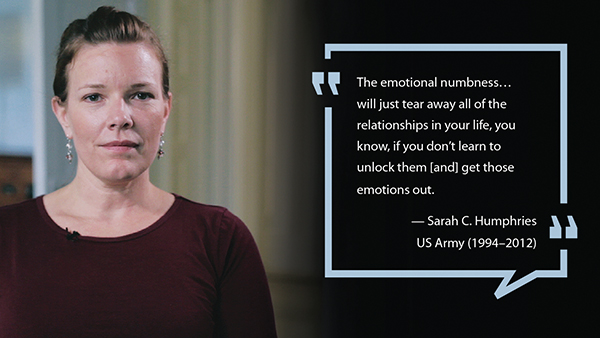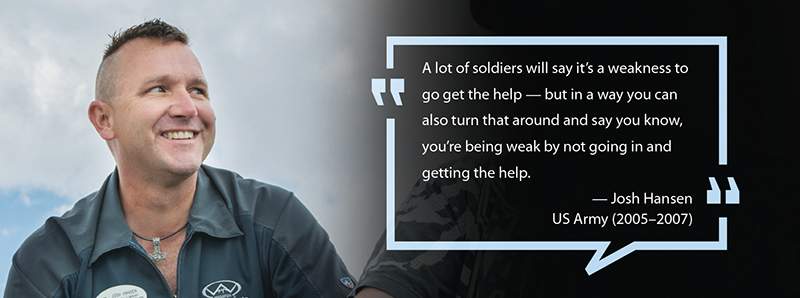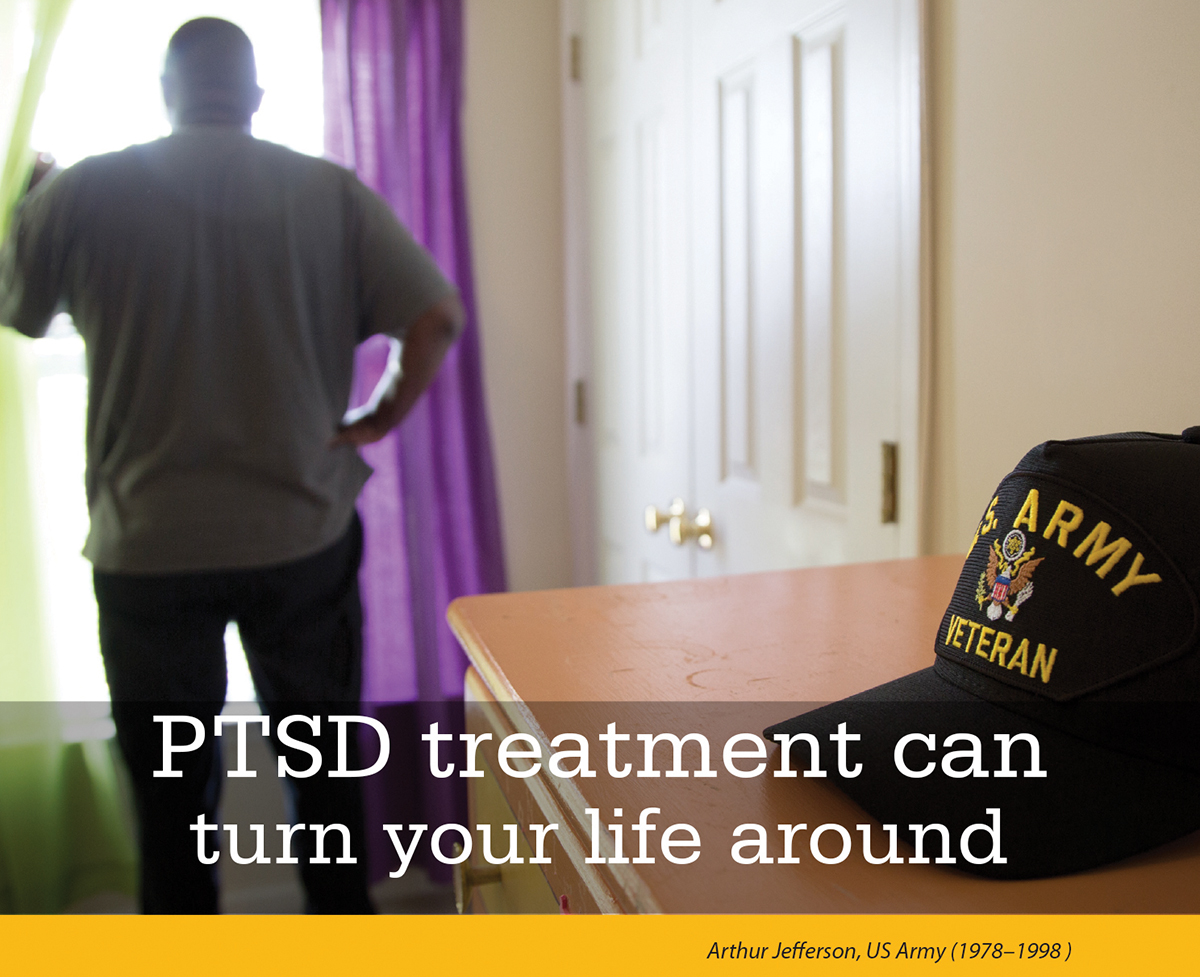
Veterans who have turned their lives around with PTSD treatment
What is PTSD?
PTSD (posttraumatic stress disorder) is a mental health problem that some people develop after experiencing or witnessing a life-threatening event, like combat, a natural disaster, a car accident, or sexual assault.
It’s normal to have upsetting memories, feel on edge, or have trouble sleeping after this type of event. At first, it may be hard to do normal daily activities, like go to work, go to school, or spend time with people you care about. But most people start to feel better after a few weeks or months.
If it’s been longer than a few months and you’re still having symptoms, you may have PTSD. For some people, PTSD symptoms may start later on, or they may come and go over time.
If thoughts and feelings from a life-threatening event are upsetting you or causing problems in your life,
you may have PTSD.

Here’s the good news: you can get treatment for PTSD — and it works.
For some people, treatment can get rid of PTSD altogether. For others, it can make symptoms less intense. Treatment also gives you the tools to manage symptoms so they don’t keep you from living your life.
PTSD treatment can turn your life around — even if you’ve been struggling for years.
How do I know if I have PTSD?
The only way to know for sure is to talk to a mental health care provider. He will ask you about your trauma, your symptoms, and any other problems you have.
You’re not alone.
Going through a traumatic event is not rare. At least half of Americans have had a traumatic event in their lives. Of people who have had trauma, about 1 in 10 men and 2 in 10 women will develop PTSD.
There are some things that make it more likely you’ll develop PTSD — for example, having very intense or long-lasting trauma, getting hurt, or having a strong reaction to the event (like shaking, throwing up, or feeling distant from your surroundings).
It’s also more common to develop PTSD after certain types of trauma, like combat and sexual assault. But there’s no way to know for sure who will develop PTSD.

For more information and resources visit the National Center
for PTSD website at: www.ptsd.va.gov




